
In every issue of CatholicU magazine, we feature a Q&A with a faculty member focusing on his or her area of scholarship. This time, we invited five faculty members representing the disciplines of theology, philosophy, and psychology to a roundtable discussion on the topic of happiness.
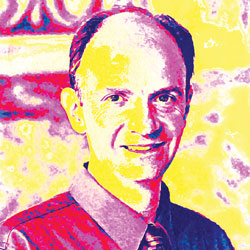 David Cloutier is an associate professor of moral theology/ethics. He is the author of four books, including the award-winning The Vice of Luxury: Economic Excess in a Consumer Age. Cloutier received a $40,000 grant from The Happiness and Well-Being Project at Saint Louis University to collaborate on publications on the ethics of virtue and human agency.
David Cloutier is an associate professor of moral theology/ethics. He is the author of four books, including the award-winning The Vice of Luxury: Economic Excess in a Consumer Age. Cloutier received a $40,000 grant from The Happiness and Well-Being Project at Saint Louis University to collaborate on publications on the ethics of virtue and human agency.
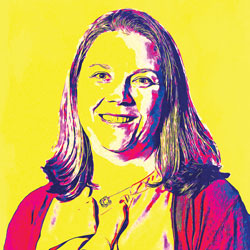 Kate Degnan is an assistant professor of psychology. Her areas of expertise include human develop-ment, temperament, social relationships, and positive well-being. Her work looks at risk and resilience throughout childhood, adolescence, and adulthood. Degnan is the director of the Psychology Department’s Positive Development Lab.
Kate Degnan is an assistant professor of psychology. Her areas of expertise include human develop-ment, temperament, social relationships, and positive well-being. Her work looks at risk and resilience throughout childhood, adolescence, and adulthood. Degnan is the director of the Psychology Department’s Positive Development Lab.
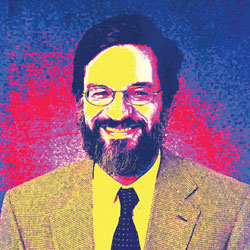 Michael Gorman is a professor of philosophy. His research focuses on questions of metaphysics and human nature. A fellow of the University’s Institute for Human Ecology, he has also been an Alexander von Humboldt fellow (Leipzig, 2004), a Fulbright fellow (Cologne, 2008), and a scholar with the Templeton Foundation’s working group “Virtue, Happiness, and the Meaning of Life.”
Michael Gorman is a professor of philosophy. His research focuses on questions of metaphysics and human nature. A fellow of the University’s Institute for Human Ecology, he has also been an Alexander von Humboldt fellow (Leipzig, 2004), a Fulbright fellow (Cologne, 2008), and a scholar with the Templeton Foundation’s working group “Virtue, Happiness, and the Meaning of Life.”
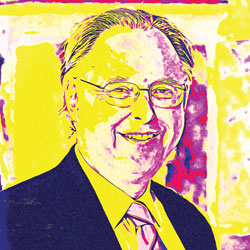 Reinhard Huetter is a professor of fundamental and dogmatic theology. His research and writing in recent years has focused on theological anthropology and the related topics of nature and grace, divine and human freedom, faith and reason, theology, and metaphysics. He is a fellow of the University’s Institute for Human Ecology and was a scholar with the Templeton Foundation’s working group “Virtue, Happiness, and the Meaning of Life.”
Reinhard Huetter is a professor of fundamental and dogmatic theology. His research and writing in recent years has focused on theological anthropology and the related topics of nature and grace, divine and human freedom, faith and reason, theology, and metaphysics. He is a fellow of the University’s Institute for Human Ecology and was a scholar with the Templeton Foundation’s working group “Virtue, Happiness, and the Meaning of Life.”
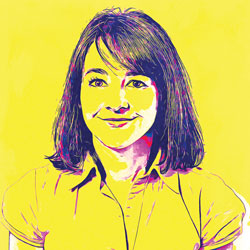 Angela McKay Knobel is an associate professor of philosophy. Her areas of expertise include moral philosophy, Thomistic ethics, and virtue ethics. She has published extensively on medieval and contemporary ethics. She is a fellow of the University’s Institute for Human Ecology and was a scholar with the Templeton Foundation’s working group “Virtue, Happiness, and the Meaning of Life.”
Angela McKay Knobel is an associate professor of philosophy. Her areas of expertise include moral philosophy, Thomistic ethics, and virtue ethics. She has published extensively on medieval and contemporary ethics. She is a fellow of the University’s Institute for Human Ecology and was a scholar with the Templeton Foundation’s working group “Virtue, Happiness, and the Meaning of Life.”
CatholicU: There seems to be increased public interest in happiness lately. Why?
Knobel: A significant portion of our population has more control over their lives in a way that earlier generations did not. A friend’s mother was in town and we were all talking and she said, “You kids! You’re always talking about whether you’re happy or not. We never, ever thought about that. We thought about whether we could pay the rent on time, and whether we could buy clothes for our kids. We were happy, but we never thought about it.” But when you have all the basics and you know that your mortgage is going to get paid and you’re not worried about being fired, then this other question, “Do I like my life?” bubbles up.
Cloutier: I think we’re concerned about happiness because we’ve lost certain features of natural human happiness. People feel better if they live in a naturally beautiful space. We live in highly artificial spaces now. All of the happiness studies that I’m familiar with suggest that stable, long-term relationships make people feel happy and satisfied. We have less of that now. People move around more. Communities are more fragmented.
CatholicU: Do social media and other societal pressures play a role?
Degnan: In the same way that the environments we live in are more artificial now, those types of connections with people can be more artificial, as well. You choose how to form your image online. You realize that you’re choosing what to put on there, but you don’t necessarily realize that the other people are also choosing, so you try to mold your persona to look as perfect as possible. It’s like you’re trying to keep up with the Joneses who don’t actually exist.
Knobel: It seems like everything is so narrated now. How fun it was to be a kid and just invent stuff to do! Now, you have playdates, and you’re enrolled in activities, and we define everything we do. And I wonder if that diminishes happiness.
Degnan: There’s a lot of pressure on parents to script their child’s lives in these ways to make them happy, and it doesn’t make the children happy. It’s also putting this image out there that this is what life is supposed to be like.
Gorman: People feel the cost of not doing these things is too high, the cost of ditching social media is too high, and if they don’t take their kids to the right playdates and the right activities, then they won’t get admitted to the right kindergarten, and then they might not go to Harvard, and their life will be over.
CatholicU: How do you as scholars define happiness?
Huetter: For the past five years, I’ve worked on a book, Bound for Beatitude. We tend to forget sometimes that Psalm 1 opens in Latin “Beatus” — happy is the man, we can translate, who follows the path of God. I think happiness is fundamentally related to truth. The happy person is the person who is true or truthful, who has found truth. We are unhappy when we realize we are in relationships or situations that are untruthful, where something is lacking. And so negative feelings can be very productive, indicating there’s a problem, that truth is not spoken. Positive feelings can set in precisely when one realizes one is in a profound sense united with what Thomas Aquinas says is the perfect good for us as human beings. Even if there are moments of unhappiness in other areas, there is a deep sense of peace.
Gorman: There are two things that we mean when we say happiness, and they’re related to one another, but they’re different. One is feeling a certain way — having a certain feeling of joy or contentment or pleasure. The other is living well — living in the way we think human beings are supposed to live.
Knobel: You could be satisfied playing video games all day or binge-watching television shows. You’re not going to fulfill who you are as a human being by sitting on the couch with a bag of potato chips. The Aristotelian idea is that we are rational animals and that a good life is a life that exhibits the highest and best that the rational animal is capable of. What I think Aristotle really means when he talks about happiness is flourishing. What is a flourishing life? What does a life that has fulfilled all of its potential look like?
Cloutier: What theology adds to the definition is that we’re not only creatures that are rational, but we’re creatures that are made for relationship and love. Christian tradition calls us beyond our rational nature to some kind of relational nature — relationship primarily with God, but also with neighbor.
CatholicU: The idea of feeling happy vs. being happy seems to be an important part of the conversation.
Huetter: When most people use the word “happiness,” they are often talking about feeling happy. There is a greater happiness.
Gorman: Aristotle says that a happy life is a life lived according to virtue, meaning according to excellence. His definition does not explicitly mention anything about how you feel. Now, he thinks that if you live that way, you will feel great, unless something goes wrong — which it might. But they are distinct things. How you feel about it and whether your life is worthwhile are, I think, the two main components of happiness.
 Cloutier: Researchers often distinguish between whether people feel “happy” and whether they feel “satisfied” with their lives. I’ve seen numerous survey questions where people are asked, “Do I feel satisfied with my life?” Or, “Thinking about my life as a whole, do I think that it’s going well?” And that’s an attempt to get beyond a momentary feeling of happiness and give some kind of overall assessment of whether one’s life is worthwhile.
Cloutier: Researchers often distinguish between whether people feel “happy” and whether they feel “satisfied” with their lives. I’ve seen numerous survey questions where people are asked, “Do I feel satisfied with my life?” Or, “Thinking about my life as a whole, do I think that it’s going well?” And that’s an attempt to get beyond a momentary feeling of happiness and give some kind of overall assessment of whether one’s life is worthwhile.
Degnan: In today’s culture, there tends to be an emphasis on self-gratification, being “me” oriented. That’s the idea of feeling happy. A more worthwhile conversation is about self-compassion. I think people get the two confused in our society. Self-compassion is about giving yourself the permission to just be you in your three-dimensional space and forgive yourself without judgment. When you’re able to do that, you’re much more able to be compassionate to others and to do good.
CatholicU: With so much subjectivity involved, it must be a challenge for researchers studying happiness.
Knobel: In general, happiness studies show that caretakers are happy. People who are grateful are happy. People who are in relationships, people on whom other people depend, people who give of themselves express more satisfaction with their lives. They’re more peaceful, more content.
Cloutier: The happiness studies — even though they’re often reliant on imperfect measures of subjective feeling — support these basic elements of human flourishing that are at the heart of the Christian tradition and many other religious traditions, too — that material objects and seeking the most material wealth doesn’t actually pay off in happiness.
Degnan: There are tons of scales out there that measure how satisfied someone is with life, or how much well-being they have. “Do you feel like you’re doing the things that you want to be doing?” “How much positive affect do you show on a daily basis?” It’s often about subjective feelings. Positive and negative affect are often lumped in there, with all measures of life satisfaction or well-being, which is still all subjective. There are individual differences in that subjective sense of it, and also individual differences in whether that is flourishing or not.
Gorman: In what you might call the “shopping mall conception of life,” we have all these choices for attaining instant or fleeting satisfaction. We’re starting to realize that’s not a good model. It doesn’t hold up any model of a good life, and paradoxically, it may also lead to not feeling very good. When it’s all just a matter of your preferences, you’re incredibly vulnerable to marketing. It’s important to find a way to hold up objective standards of what a good human life looks like.
Huetter: The question of truth is unavoidable. And the true end of human life comes up in this whole question of what is happiness. Happiness studies, of course, notoriously cannot answer that normative question. We bring up Aristotle, we must also bring up Thomas Aquinas. He distinguishes between the formality of happiness and the formality of the final end. The Christian answer to the question of happiness is union with God. Even in this life, that can give us true and lasting happiness, which is open to everyone. It is unrelated to class, rank, income.
CatholicU: Can happiness mean different things to different people?
Huetter: I love to go to the park in the fall weather when the sun is shining and the colors are beautiful. But imagine a man walking through the park on that same day when he is waiting for the results of his wife’s medical test, to see whether she has stage IV cancer or not. He would not see the leaves; he would not see the sun.
I offer another example: In Nazi Germany, there was a group of young people, later called the White Rose, who distributed leaflets against Hitler. They were executed when they were in their early 20s. Before this all happened, they asked an older man, “What do you think we should do?” The old man said, “What I think you should do is to always be truthful.” And they understood that to mean they should do what their conscience taught them and to speak up against the Nazis. The old man did not say, “Be happy.” If we go for immediate happiness, it will always be fleeting. This is, of course, what Augustine and Thomas Aquinas said. Aristotle knew it. This is the old wisdom.
CatholicU: Are some people wired for happiness? Or are there things we can control?
Degnan: There’s lots of research in the neuro-biology and physiology of positive emotions and subjective well-being suggesting that there is a biological reaction to reward in your life that gets developed over time, and we don’t really know how yet.
Cloutier: One of the articles I like to give students suggests that it’s not the amount of suffering in a life that determines whether people are happy, but it’s how they deal with suffering. Happy people have constructive ways of dealing with suffering. Even if they’ve suffered grave losses, they can be happier than people who had much less suffering in their lives.
Gorman: It would help a lot for people to spend far less time on the Internet and far more time doing three-dimensional physical things with other people.
Huetter: I offer a traditional answer: We should read the Bible and seek the face of God, and the will of God, and justice.
Knobel: To which you could also add our friend Dostoevsky, who said, “The person who wishes to see the living God face to face should not seek him in the emptiness of the firmament but in human love.”
We’d love to hear from you! And please let us know if you like this roundtable format. Write to us at cua-magazine.cua.edu. We may publish your response in the next issue of CatholicU magazine.